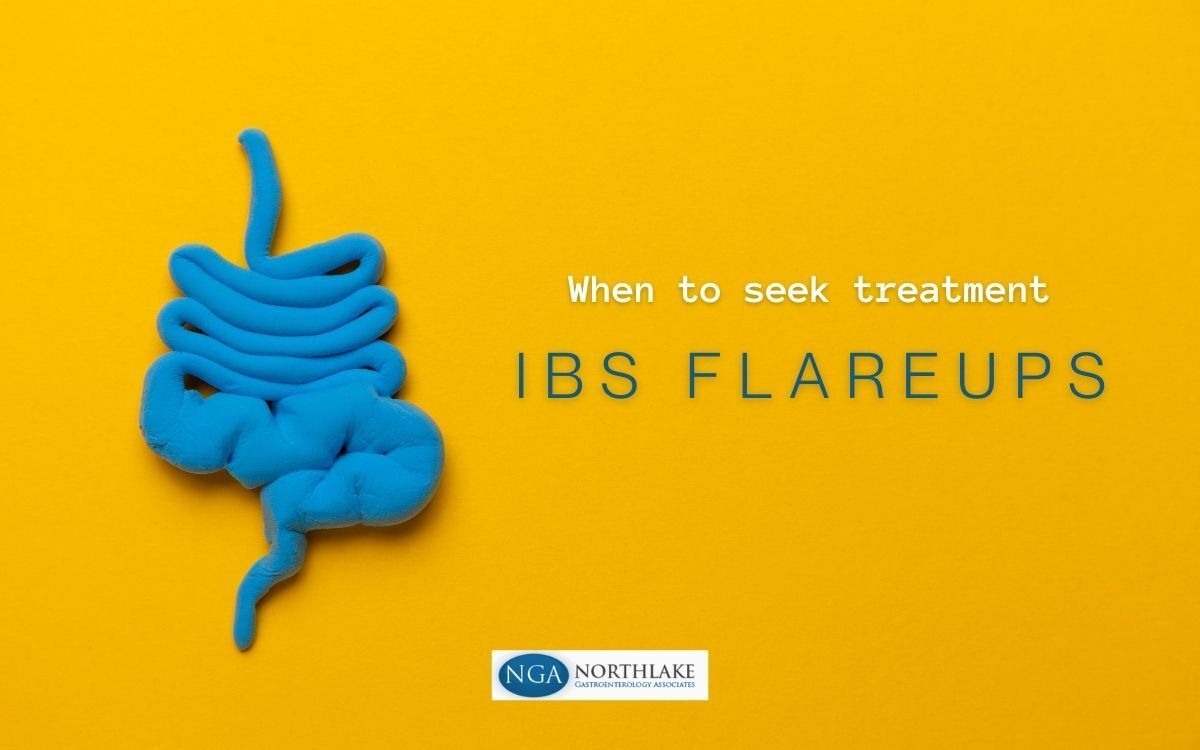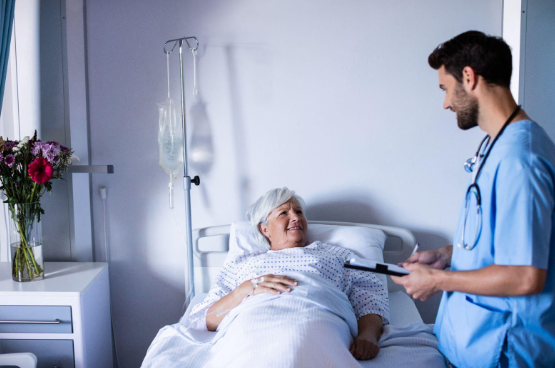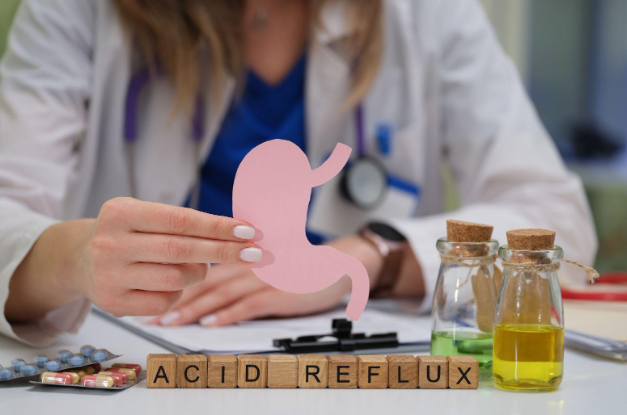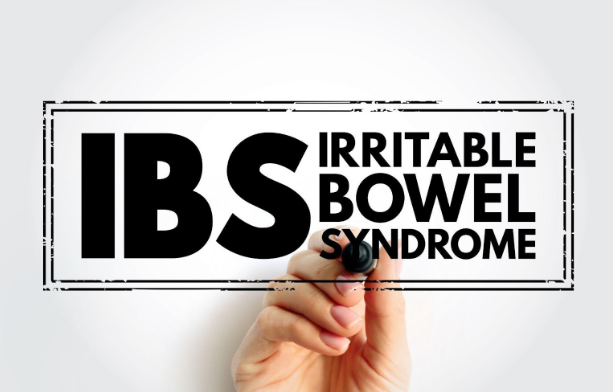IBS Flare-Ups: When to Seek Treatment

When you suffer from symptoms related to IBS, it can be challenging to perform different types of tasks and activities each day. An IBS flareup can affect your quality of life and can lead to a significant amount of discomfort. Instead of suffering in silence, you can receive the care and treatment you need from our qualified staff at Northlake Gastroenterology. Our board-certified medical professionals have a high level of knowledge and are equipped with the resources that can help make a drastic improvement in your health and deliver noticeable results when you need them most.
At Northlake Gastroenterology, we have a patient-first approach that influences how the office makes decisions. We're dedicated to providing advanced research and treatment of different types of gastro-related conditions. The specialists at the facility treat both simple and complex conditions to alleviate the symptoms and improve the health of each patient. Our physicians provide a full spectrum of care for patients with concerns about the colon, small bowel, liver, pancreas, gallbladder, esophagus, and stomach. The physicians are happy to provide expertise and treatment options to resolve current and ongoing issues.
Our specialists are committed to listening carefully to the concerns of each patient and providing a proper diagnosis to ensure the correct treatment can be provided. Each physician takes an in-depth look at the medical history of each person in their care and any external factors that could be contributing to their ailments. Hereditary factors and your family history will also be discussed during your appointment.
A variety of different types of services and procedures are provided to give high-quality care to each patient and to ensure they get the answers they need. Patients can receive an abdominal ultrasound, flexible sigmoidoscopy, management for diarrhea and constipation, percutaneous liver biopsy, fecal transplant, treatment of achalasia, endoscopic ultrasound, studies of esophageal problems, and colonoscopy. The advanced tools and equipment used are designed to offer an in-depth look at the conditions present and track the progression of chronic ailments to ensure the correct treatment is provided.
Find Relief for an IBS Flareup
When you're dealing with nausea, constipation, diarrhea, bloody stool, and abdominal discomfort, you likely are experiencing a flare-up after suffering from IBS. Other types of IBS flare-up symptoms include swelling or bloating of the abdomen, a feeling that the bowels are full when they're empty, changes in stool frequency, and excessive gas. If the symptoms aren't addressed, they can progress and develop into headaches, joint or muscle pain, anxiety or depression, frequent urination, and brain fog.
Flare-ups can come on suddenly and can be triggered by stress or eating the wrong types of food. Under the care of a physician at Northlake Gastroenterology, it's possible to immediately alleviate the symptoms you're experiencing and find relief to ensure you can feel like yourself again.
You don't have to continue to suffer in pain and can immediately be seen by one of our specialists who can discuss your symptoms and help you to obtain the right medication you need to reduce any inflammation that may be present. You can also obtain prescription medication that minimizes the inflammation and keeps it away long-term to manage your condition and prevent flare-ups from occurring in the future.
The specialist will also want to talk to you about your diet and any modifications that need to be made. You can discuss possible triggers that have contributed to your flare-ups to determine which foods to avoid or limit.
What Causes IBS Flareups?
A physician at our facility at Northlake Gastroenterology can help you to identify what triggers are leading to your flareups to reduce the risk of inflammation in the future. Eating trigger foods is one of the most common causes. Many people may experience a flare-up when they eat foods that are spicy, greasy, or difficult to digest. Dairy and gluten are also common triggers and should be avoided.
Both long-term and short-term stress can also lead to gut issues. The inflammation can continue to increase and become more severe until a flare-up develops. In some cases, gastrointestinal infections can also develop and can lead to blood in the stool. Some people with psychological conditions like depression, anxiety, or PTSD may experience more flare-ups over time, making it necessary to find ways to remain calm each day and address emotional issues to improve gut health.
Your doctor may suggest practicing mindfulness meditation each day to relax your body and mind, which can reduce the risk of a flare-up. This is proven to reduce gut issues and can even alleviate bloating.
Yoga is another type of practice that you can incorporate into your schedule, especially when you're in high-stress situations or are facing challenges. Yoga incorporates both breathing techniques and movement. Studies have shown it works well to alleviate stress and reduce symptoms associated with IBS.
Monitor Your Health
When you're in the care of one of our specialists at Northlake Gastroenterology, your health will be monitored to ensure you can treat symptoms that may be developing before they become more severe. A gastroenterologist will likely want to schedule a routine colonoscopy each year to determine if your condition has progressed, especially if you're suffering from colon-related issues. An endoscopy may also need to be scheduled annually to look for any polyps, ulcers, or inflammation that is present in the intestines.
You can expect to have your treatment plan tailored toward your specific and individual needs to ensure you receive the care you need when you're experiencing IBS flare-up symptoms. You can make adjustments at any time to ensure you improve your overall health and well-being.
Your healthcare professional will spend time discussing your concerns and working toward goals that you have for your health to ensure you can continue to improve and avoid potential setbacks. The compassionate care you receive can make it easier to feel supported and gain the insight you need to make better decisions for your health to avoid IBS attacks. Learning more about causes and treatments is one of the best things you can do if you have IBS.
Managing IBS Symptoms
Our team of gastrointestinal specialists at Northlake Gastroenterology is compassionate and will work hard to help you manage your IBS symptoms to ensure you can maintain the quality of your life. This may include avoiding consuming a high FODMAP diet, which consists of foods that contain fructans, oligosaccharides, dairy or lactose, polyols, and fructose.
Some types of foods can be consumed to maintain proper gut health, especially during an IBS flareup. Rice, gluten-free oatmeal, brown rice, cooked vegetables, white meat, and nuts and seeds are recommended. Some foods can slowly be reintroduced and incorporated back into the diet once the inflammation subsides.
Some patients are also instructed to reduce their caffeine intake, which is known to have a laxative effect on the body and can increase bowel movements. This includes cutting out foods and beverages that contain caffeine like chocolate, coffee, soda, and tea. Changes to the diet are one of the most effective ways to reduce your pain and discomfort and put your condition into remission.
When to See a Specialist
Changing bowel movements should prompt you to consult a specialist to determine if a flare-up has occurred. You may have tried many at-home remedies that have proven to be unsuccessful, making it necessary to be evaluated by a medical professional who can provide you with a more effective treatment.
It's also necessary to see a doctor when you're experiencing dizziness, a lack of appetite, blood in the stool, nausea, pain that continues to escalate, symptoms that interrupt your sleep, and vomiting.
Common IBS Treatments
It's important to know when it's time to speak to a specialist at our office at Northlake Gastroenterology to ensure you receive the care you need before the problems escalate. You can learn the proper causes and treatments to alleviate the symptoms of IBS attacks. You may receive IBS medications like Lubiprostone or Alosetron. Antispasmodics are also effective in relaxing the muscles in the colon, which can reduce the feeling of having an urgency to have a bowel movement.
Antidiarrheals have also been shown to be effective in treating severe cases of diarrhea, which can often lead to dehydration. These medications need to be taken under the supervision of a specialist.
Antidepressant medications may also be included in the treatment plan to relieve constipation or diarrhea. They can even be effective in alleviating some discomfort or pain you're experiencing and can make it easier to recover from the flare-up more quickly.
When you're in the care of a gastroenterologist at Northlake Gastroenterology, you can rest assured knowing one of our professionals will carefully monitor your health and help you to obtain treatment for your diagnosis. Our professional medical team provides a high level of personalized care in a dignified manner and will use their expertise to help you improve your health and well-being.
Contact us today to receive the care you need when you're experiencing gastrointestinal pain or discomfort. We have multiple locations in Louisiana, so you can find one that's convenient for you.
More Blogs












